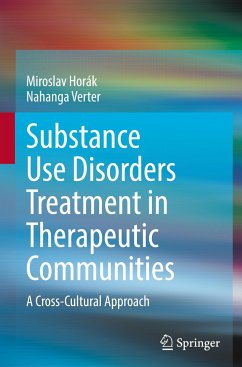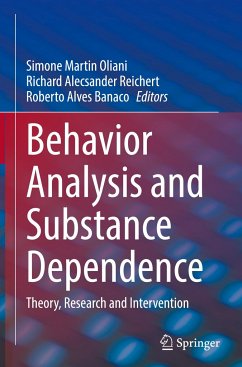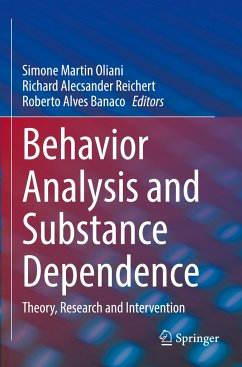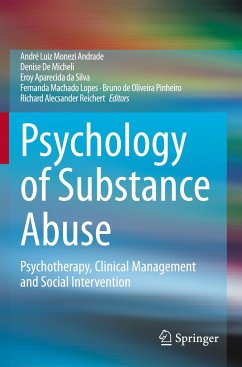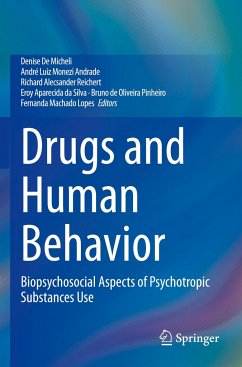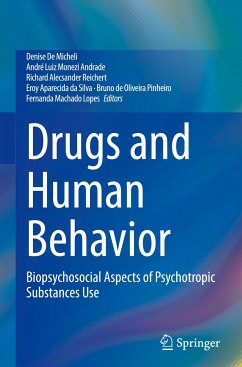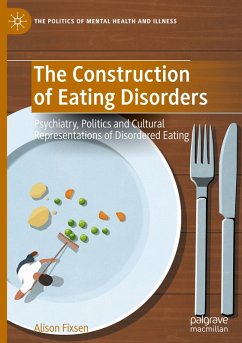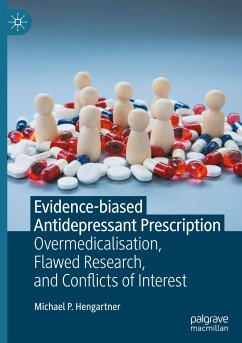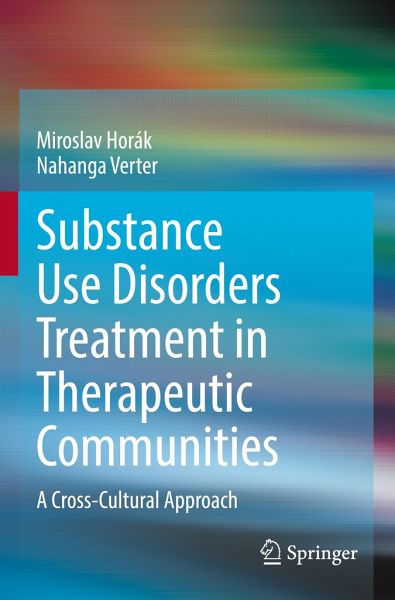
Substance Use Disorders Treatment in Therapeutic Communities
A Cross-Cultural Approach
Versandkostenfrei!
Versandfertig in 6-10 Tagen
76,99 €
inkl. MwSt.
Weitere Ausgaben:

PAYBACK Punkte
38 °P sammeln!
This book presents an in-depth qualitative study carried out with inpatients under treatment for substance use disorders (SUDs) in seven therapeutic communities (TCs) located in three countries: Peru, Nicaragua and Czech Republic. By comparing the experiences in these different cultural contexts, the book presents a grounded theory of SUDs treatment in TCs from a cross-cultural perspective, identifying factors that influence the efficacy of SUDs treatment in TCs based on interviews carried out with inpatients.Based on rigorous qualitative research methods, this book presents not only a compara...
This book presents an in-depth qualitative study carried out with inpatients under treatment for substance use disorders (SUDs) in seven therapeutic communities (TCs) located in three countries: Peru, Nicaragua and Czech Republic. By comparing the experiences in these different cultural contexts, the book presents a grounded theory of SUDs treatment in TCs from a cross-cultural perspective, identifying factors that influence the efficacy of SUDs treatment in TCs based on interviews carried out with inpatients.
Based on rigorous qualitative research methods, this book presents not only a comparative analysis of TCs located in different cultural contexts, but also analyzes the cross-cultural nature of the therapeutic programs adopted in these communities, such as the combination of traditional Amazonian medicine based on the therapeutic use of ayahuasca with conventional psychotherapy and occupational therapy, among other approaches. Departing from the interviews carriedout with inpatients, the authors present a comparative analysis of how the different TCs address important issues related to SUDs treatment, and complement this analysis with machine-generated summaries of relevant scientific papers. These summaries contain results of similar research projects conducted in other cultural contexts.
Substance Use Disorders Treatment in Therapeutic Communities: A Cross-Cultural Approach presents the results of a unique comparative study with great translational potential which will be of interest to both researchers and practitioners working in TCs. This unique comparative study identifies factors affecting the efficacy of therapeutic programs and proposes a grounded theory which aims to serve as an important source of information for therapists and other professionals working with SUDs treatment and for the replication of applied therapeutic methods in other TCs.
Based on rigorous qualitative research methods, this book presents not only a comparative analysis of TCs located in different cultural contexts, but also analyzes the cross-cultural nature of the therapeutic programs adopted in these communities, such as the combination of traditional Amazonian medicine based on the therapeutic use of ayahuasca with conventional psychotherapy and occupational therapy, among other approaches. Departing from the interviews carriedout with inpatients, the authors present a comparative analysis of how the different TCs address important issues related to SUDs treatment, and complement this analysis with machine-generated summaries of relevant scientific papers. These summaries contain results of similar research projects conducted in other cultural contexts.
Substance Use Disorders Treatment in Therapeutic Communities: A Cross-Cultural Approach presents the results of a unique comparative study with great translational potential which will be of interest to both researchers and practitioners working in TCs. This unique comparative study identifies factors affecting the efficacy of therapeutic programs and proposes a grounded theory which aims to serve as an important source of information for therapists and other professionals working with SUDs treatment and for the replication of applied therapeutic methods in other TCs.





